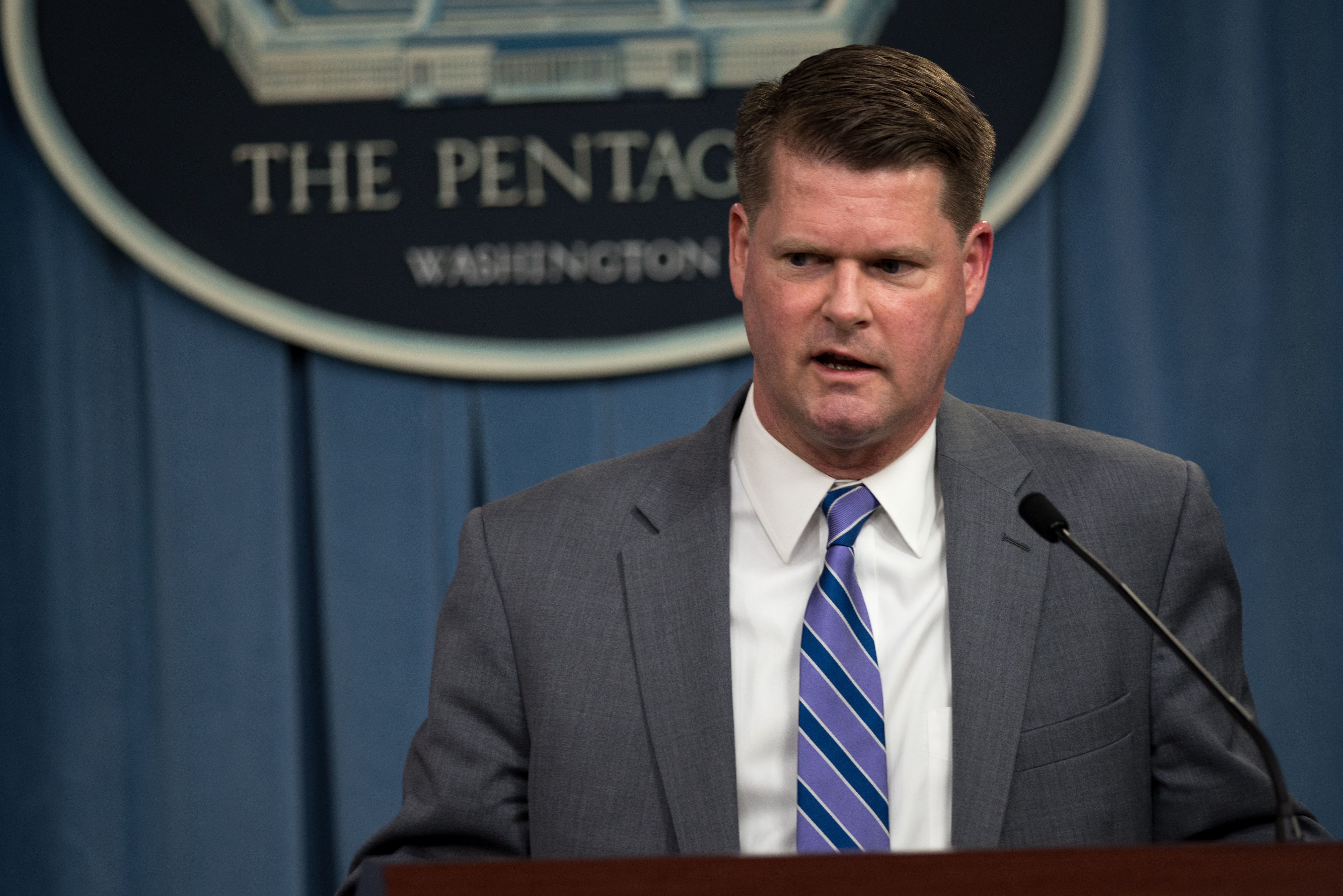
The Pentagon’s chief Indo-Pacific strategist who is known for being tough on China is leaving the Department of Defense after nearly two years on the job.
Randall Schriver, assistant secretary of defense for Indo-Pacific security affairs, announced he plans to leave the Pentagon soon, chief Pentagon spokesman Jonathan Hoffman said during a Thursday press briefing.
Schriver’s area of expertise in the Indo-Pacific region is unmatched in the department, Hoffman said. The high-profile position requires a lot of travel, and Schriver has a young family he wants to spend more time with, Hoffman said.
“Given the demands of the job that requires a significant amount of international travel – going back and forth to Mongolia, Japan, Korea, Australia, China on a near bi-weekly basis – takes a toll on a family, and Randy is looking to move onto another position,” Hoffman said. “I appreciate everything he’s offered the department and look forward to seeing what he does next.”
Schriver has spent most of his career focused on the Indo-Pacific region. He previously served as deputy assistant secretary of state for East Asian and Pacific affairs. During a previous stint at the Pentagon, Schriver was the point person for the day-to-day management of U.S. bilateral relations with China’s People’s Liberation Army and bilateral security and military relationships with Taiwan. Schriver served as an intelligence officer in the Navy from 1988 to 1991, according to his DoD biography.
Since being appointed to be assistant secretary of defense in January 2018 by President Donald Trump, Schriver has pushed a policy of increased U.S. military and diplomatic involvement in countering China’s influence in the Pacific. Much of his role was at the Pentagon was to help Pacific nations develop maritime domain awareness.
“We are reinvigorating our longstanding alliances with Thailand and the Philippines while bolstering our enduring partnership with Singapore. We are expanding strategic defense relationships with important regional players such as Indonesia, Vietnam, and Malaysia,” Schriver told lawmakers during a May 2018 appearance before the Senate Foreign Relations subcommittee on East Asia, the Pacific, and international cybersecurity policy.
The most prominent action taken by the U.S. military during Schriver’s time at the Pentagon has been the steady pace of freedom of navigation operations in the South China Sea, Taiwan Strait and other Indo-Pacific waters. During Schriver’s time in office, the U.S. Navy regularly sent warships past land masses claimed by China or through the narrow body of water separating Taiwan from mainland China. The purpose of these missions is to promote the freedom of movement for all maritime traffic.
“Although the United States will continue to pursue a constructive, results-oriented relationship with China, we will not accept policies or actions that threaten to undermine the international rules-based order, a system that has benefited everyone in the region, including China. We will stand up for and defend that order, and we will encourage others to do the same; and although we are committed to cooperating with China where our interests align, we will compete, vigorously, where our interests diverge,” Schriver said during the May 2018 Senate hearing.





